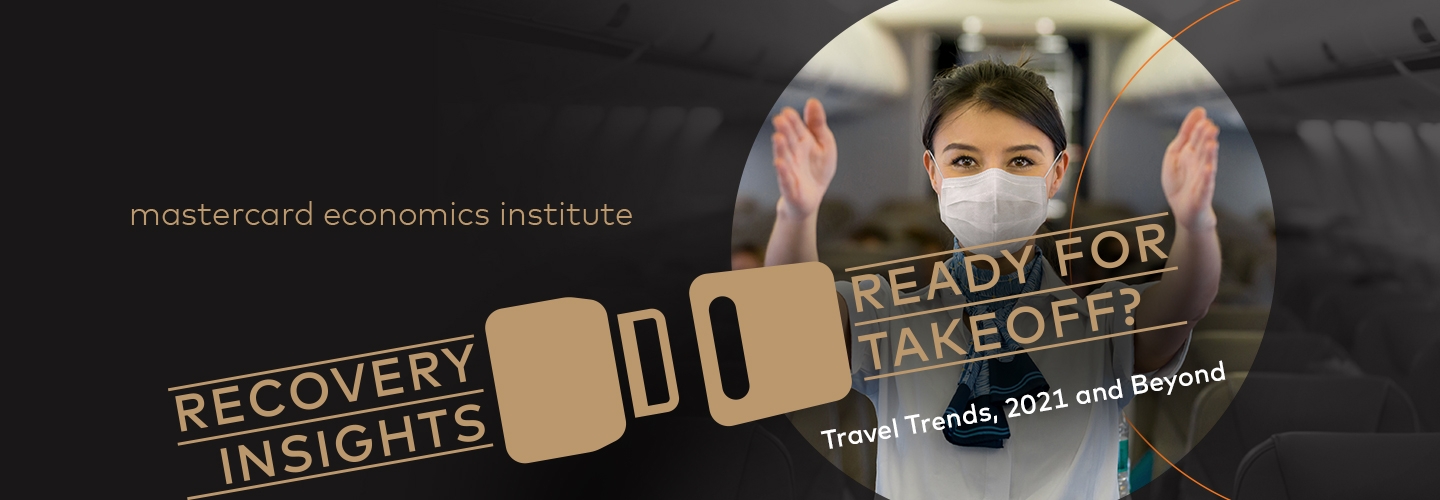One in five countries approach pre-pandemic domestic flight levels as travel resumes
 |
| A new study by Mastercard shows that travel is slowly returning to normal |
After flights were largely grounded and travellers stayed home in 2020, the return to travel has become one of the most anticipated – and uncertain – activities of 2021. Mastercard released "Recovery Insights: Ready for Takeoff?", a view into key travel trends in the air and on the ground, around the world. While the global travel recovery remains uneven, one-fifth of countries studied have returned to at least 90 per cent of pre-pandemic levels for domestic flight bookings, with Australia surpassing the global average with bookings at 116 per cent.
The report draws on aggregated and anonymised sales activity across the global Mastercard network, along with third-party data sets and proprietary analysis by Mastercard Economics Institute, to better understand the next phase for travel, its drivers and challenges. This includes the balance between leisure and business, local and long-distance, and saving and spending. The report also looks at the spending categories seeing an uptick and what they signal for travel recovery.
“Although many markets in the Asia-Pacific are yet to see international borders open, there are some early bright spots in domestic travel recovery,” said David Mann, chief economist, AP & MEA of the Mastercard Economics Institute. "As travel corridors continue to open and flourish across the US and Europe, Mastercard believes the pent-up demand in the Asia-Pacific, exacerbated by extended lockdowns, will follow a similar trajectory in both business and leisure travel, as the region cautiously re-opens its borders.”
Some key findings from the report include:
- Business travel lags behind leisure travel by approximately four months globally. Business travel is showing recovery signs worldwide, with Australian domestic business travel bookings at nearly 80 per cent of pre-COVID-19 levels, and US domestic business travel back up to just over half of its 2019 average level. Australia, Malaysia, and the Philippines are all seeing business travel bookings outstripping leisure bookings, offering a glimmer of hope for a strong recovery once travel corridors open up.
- Globally fuel spending is up 13 per cent (fuel figures not price adjusted) from its previous peak in 2019. Road trips – the big trend of 2020 – are still holding their course. The report shows a robust demand for domestic ground travel, with fuel spending up in Singapore, Hong Kong (China), the Philippines, and Australia, where areas such as Margaret River and Dunsborough are seeing a swell in local visitors.
- With border closures still in place, pent-up savings are helping to drive sales across a variety of categories. For instance, sales at toupee and wigs stores have increased 81 per cent in Australia in the past year, compared to pre-pandemic, and sales for beauty salons and luggage stores are also up. Meanwhile, spending at boat dealers (up 30 per cent) and bike stores (up 62 per cent) grew across the world, as pent-up demand collided with greater savings due to fiscal stimulus and travel restrictions.
“The past year has only reinforced how important travel is – to our connection with friends, family, and the broader world, to our business communities, and to our personal fulfilment,” said Raj Seshadri, president of data and services, Mastercard. “The economic implications of tourism are vast, with virtually no industry untouched when travellers stay home. Through Recovery Insights, Mastercard has helped airlines redesign travel routes, retailers rejig inventory, and cities understand shifts in neighbourhood spending. It’s about enabling smarter decisions for better outcomes – today and tomorrow."
Mastercard launched Recovery Insights to help businesses and governments better manage the economic risks presented by COVID-19. Through this initiative, Mastercard has provided data-driven insights, analytics, and other services to businesses and governments to help them understand ever-changing consumer spending trends and how to address them.
For instance, early last year, a leading Asia-Pacific airline leveraged Mastercard Test & Learn to understand what was driving performance during the pandemic. It was discovered that trip duration greater than seven days grew by nearly two-thirds, and tickets bought months in advance grew by roughly half. Building on these insights, the airline was able to instantly adjust its strategy in real-time to optimise its sales and better serve travellers.
What the stars mean:
★ Poor ★ ★ Promising ★★★ Good ★★★★ Very good ★★★★★ Exceptional
Related Contents
Latest News
More News
- The destinations powering Vietnam’s festive season travel demand (December 04, 2025 | 18:33)
- Vietnam named among the world’s most exciting winter destinations (December 04, 2025 | 15:10)
- Phu Tho emerges as northern Vietnam’s new tourism hub (December 01, 2025 | 17:00)
- Vietjet completes Airbus A320/A321 updates ahead of deadline (December 01, 2025 | 09:49)
- Vietjet resumes Con Dao flights from early December (November 28, 2025 | 15:24)
- Free tickets, Lunar New Year promotions on offer at Vietjet Mega Livestream (November 26, 2025 | 15:32)
- Scandinavian Airlines and Vietnam Airlines broaden agreement with new routes (November 25, 2025 | 17:04)
- Halong Cruise Port welcomes over 3,100 international visitors (November 12, 2025 | 18:06)
- Vietnam.travel climbs to second place in Southeast Asia website rankings (November 12, 2025 | 18:01)
- Cat Ba named among Southeast Asia’s top island adventures (November 11, 2025 | 18:09)

 Tag:
Tag:




















 Mobile Version
Mobile Version